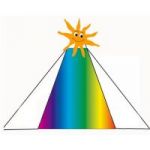All about sun > Winter sun warning to protect skin during outdoor activities
With the cold season, the last thing on most women’s minds is the thought of applying sunscreen. However, they should know that the sun's reflection from ice and snow has eight times more UV radiation than water – even in the summer.
Whether heading out of town for a ski vacation, an afternoon of cross-country skiing or skating, or playing a local pick-up game of hockey, the last thing on most minds of people is the thought of applying sunscreen.
MYTH: In wintertime, the rays from the sun are weak, and our skin is safe from overexposure to UV rays.
FACT: Do not let the winter’s cold fool you; UV radiation is dramatically higher on a snowy day. Snow reflects as much as 80 per cent of UV radiation, which is much higher than the amount reflected by water (10%) or dry beach sand (15%) even in summer.
Do not think you are safe from UV exposure because the sky is cloudy - the sun’s harmful rays can get through fog, haze, and light cloud cover.

Ultraviolet (UV) radiation is a component of solar radiation. UV radiation levels are influenced by a number of factors. One such factor is sun elevation: the higher the sun in the sky, the higher the UV radiation level. Additionally, elements like latitude and altitude mean that closer proximity to the equator and higher attitudes result in greater the UV radiation levels. While it is expected that UV radiation levels are also highest under cloudless skies - even with cloud cover, they can be at elevated levels. The ozone also influences UV radiation levels as it absorbs some of the UV radiation from the sun yet as it is depleted, more UV radiation reaches the earth's surface. Finally, many surfaces reflect the sun’s rays and add to the overall UV exposure (e.g. grass, soil and water reflect less than 10% of UV radiation; fresh snow reflects up to 80%; dry beach sand reflects 15%, and sea foam reflects 25%).
Sunlight is strong enough to cause skin cancer, as well as accelerated skin aging, cataract and other eye diseases with overexposure. The risk of skin cancer today is much greater than it was 20 years ago and continues to increase. While it has long been thought that a small amount of UV radiation is beneficial to one’s health given the role it plays in the production of vitamin D, it is recommended that a safer way to receive vitamin D is through food and supplements.
Excessive UV exposure on the skin results in a number of chronic skin changes including:
- skin cancer
- Photoageing: a loss of skin tightness and the development of solar keratosis.
There are a number of measures that can help protect against overexposure to UV radiation. If participating in outdoor activities when the UV index is 3 or higher, it is recommended:
- to always wear 100% UV protective sunglasses to protect your eyes
- cover your forehead with hat or visor
- apply sunscreen to exposed skin, reapplying often as directed and using a ‘broad spectrum’ sunscreen with sun protection factor (SPF) of at least 30x.
- increase in your diet food containing vitamin D.
Thanks to Melanoma Network of Canada for their kind assistance.
Other sources
Canadian Dermatology Association. 2010 Melanoma Fact Sheet.
World Health Organization. Ultraviolet Radiation and Human Heatlh.
Canadian Cancer Society. About UV Rays
Canadian Cancer Society. Being Safe in the Sun.
World Health Organization. Ultraviolet Radiation and Human Health.
Canadian Cancer Society. About UV Rays.
Canadian Cancer Society. Sun and UV
Canadian Dermatologists Association. Safe way to maintain adequate levels of vitamin D.
World Health Organization. Ultraviolet Radiation and Human Health.
BC Cancer Agency. Prevention.
Health Canada. Ultraviolet Radiation from the Sun.
World Health Organization. Global Solar UV Index: UV radiation.



| Spas | Care & Make-up | Health | For Men | Glossaries | Various | |||||
| Intro | Face (care) Make-up Body Hair Endless Youth Mother & Baby Corner Suncare Essentials And more... New products Spot A HairdresserMake-up Artist Directory | Healthy Diet Watching your figure Relaxation | Intro New products | All about... | Phytotherapy All Natural Fashion Perfume Jewelry & accessories And more... What is your style? |
-

 Spas
Spas
-

 Care & Make-up
Care & Make-up
-

 Health
Health
-

 For Men
For Men
-

 Glossaries
Glossaries
-

 Various
Various








